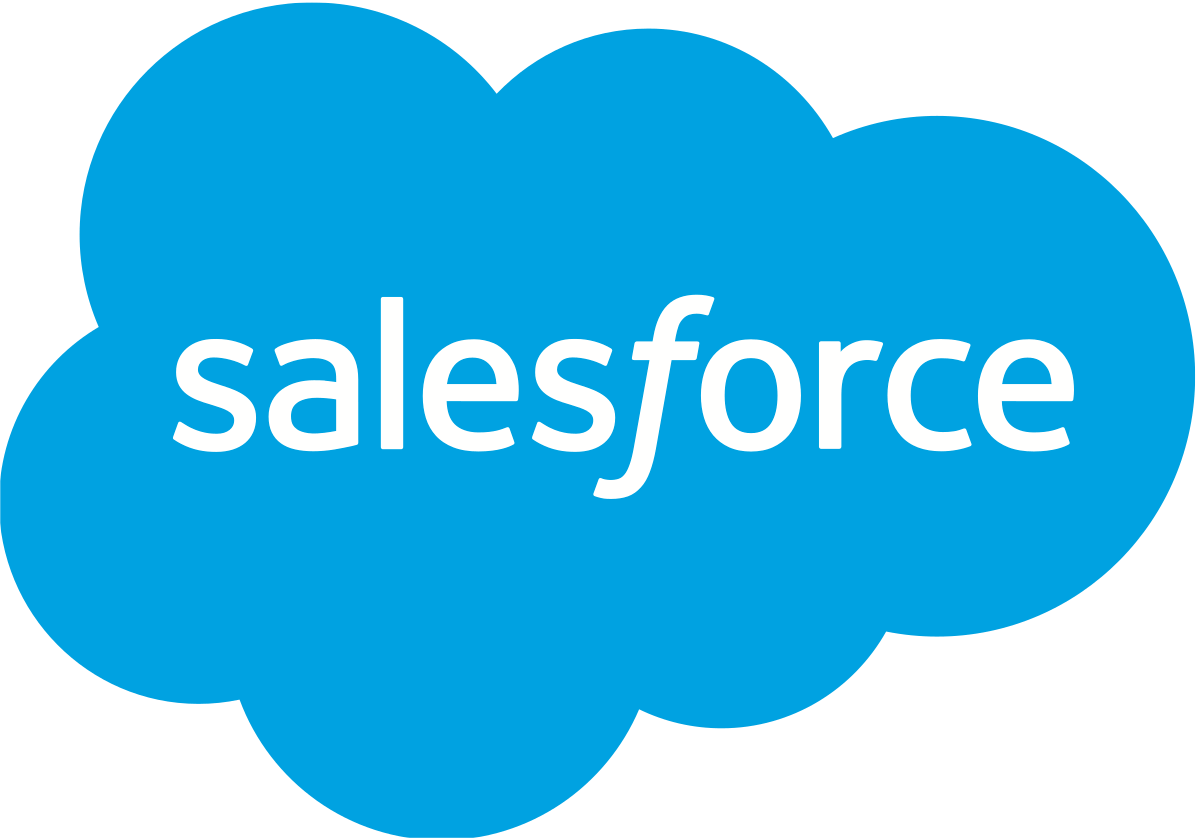Technology
AI Steers Cyber Week Shopping Cart to $61bn in Sales

Salesforce reports that Cyber Week is expected to drive $311 billion in global sales as consumers eagerly await holiday deals, with the use of AI and agents set to influence up to 19% of those orders.
The Salesforce Shopping Index — which analyses data from 1.5 billion global shoppers, more than 1.5 trillion page views, and hundreds of millions of unique SKUs on the Salesforce Customer 360 platform — showed that since the start of October, digital retailers using generative AI and agents increased their average order value by 7% compared to those without the technology ($117 vs. $109). AI and agents were also responsible for driving 17% of global orders through personalised recommendations, targeted promotions, and smarter customer service.
Retailers using AI-powered agents during this time frame also doubled customer service engagement, addressing complex cases faster as 30% of consumers prefer agents for speedier service.
“Agents have the potential to transform the holiday season by helping retailers provide personalised, timely, and efficient service to shoppers when they need it most,” said Zuko Mdwaba, Salesforce area vice president/Africa executive and South Africa. “There is a wide open opportunity for digital retailers to use AI for personal shopper agents that help consumers find exactly what they’re looking for and continue to make the path to purchase an easy one.”
Salesforce’s Cyber Week 2024 predictions: Reviewing real-time aggregate data stemming from Agentforce, Commerce Cloud, Service Cloud, and Marketing Cloud, Salesforce expects to see four major trends during this year’s most critical shopping week:
AI steers the shopping cart: AI and agents will likely influence 19% of Cyber Week orders, accounting for $61 billion in global sales.
Cyber sales surge: Cyber Week sales are expected to reach $311 billion worldwide, accounting for 23% of all holiday purchases in 2024, and $75 billion in the United States.
Discount rates are expected to be attractive: Average discounts will likely peak at 28% globally and 30% for the U.S., fueling 5% YoY sales growth.
Top discounts rates globally are expected in:
Beauty & Makeup – 38%
Skincare – 33%
General Apparel – 33%
Mobile rules digital checkouts: Mobile orders will make up 70% of sales, driven by better on-the-go experiences in recent years, and presenting a new conversion opportunity with AI agents on mobile messaging apps.
Separately, a recent Salesforce survey found that 45% of global consumers are waiting to make purchases until Cyber Week, beginning November 26, to take advantage of the best deals of the season. This points to an opportunity for retailers to capitalise on shoppers’ excitement and drive more conversions with discounts and agentic customer service experiences.
In addition, the Salesforce Shopping Index’s early holiday findings, captured between Oct. 1 and Nov. 14, showed:
Global sales are growing: Global online sales dipped 1% year-over-year (YoY) during the last seven weeks, but rose 8% YoY in the first week of November, suggesting that consumer interest in holiday shopping is picking up pace.
Highest-growing sales categories:
Makeup (+10% YoY)
Active Footwear (+9% YoY)
General Handbags and Luggage (+8% YoY)
Consumers are interested in AI agents for faster customer service: Since early October, retailers who have invested in AI-powered service agents have seen double the rate of customer service engagement compared to those who have not invested in AI-powered agents.
This growth is an early indicator that agents can take on a higher and more complex case load and adequately serve customer needs.
Customers, meantime, seem open to engaging with agents. A full 30% of consumers said they would work with an AI agent if it meant faster service.
AI and agents augment the shopping experience: While a relatively new technology, major retailers are already employing AI agents to help improve shopping experiences, including:
Brands like Saks are using Agentforce to streamline routine tasks such as order tracking, enabling customer service teams to focus on delivering a highly customized shopping experience that drives conversion.
Nearly one-fifth (24%) of consumers also said they’re already comfortable with AI agents shopping for them.
Discounts and consumer demand are ramping up: Discounts peaked at an average rate of 20% in the first week of November – a 17% YoY increase, indicating that retailers are gearing up for a competitive holiday season.
Online orders have also seen a 4% YoY increase, signaling a positive shift following a year of reduced consumer spending.
Chinese shopping marketplaces entice consumers with low prices: Sixty-seven percent of buyers who use apps like Shein, Temu, and TikTok Shop reported that they are planning to make holiday purchases on them this season.
The top marketplace option for shoppers is Temu, with 40% of global consumers saying they’ve made between two and five purchases on this marketplace in the last year.
Returns present a challenge and opportunity for retailers: Returns in October and November were 33% higher than the same time frame last year, forcing retailers to take a closer look at their retention strategies and return policies to avoid losses.
Technology
Leticia Otomewo Becomes Secure Electronic Technology’s Acting Secretary

By Aduragbemi Omiyale
One of the players in the Nigerian gaming industry, Secure Electronic Technology (SET) Plc, has appointed Ms Leticia Otomewo as its acting secretary.
This followed the expiration of the company’s service contract with the former occupier of the seat, Ms Irene Attoe, on January 31, 2026.
A statement to the Nigerian Exchange (NGX) Limited on Thursday said Ms Otomewo would remain the organisation’s scribe in an acting capacity, pending the ratification and appointment of a substantive company secretary at the next board meeting.
She was described in the notice signed by the Managing Director of the firm, Mr Oyeyemi Olusoji, as “a results-driven executive with 22 years of experience in driving business growth, leading high-performing teams, and delivering innovative solutions.”
The acting secretary is also said to be “a collaborative leader with a passion for mentoring and developing talent.”
“The company assures the investing public that all Company Secretariat responsibilities and regulatory obligations will continue to be discharged in full compliance with the Companies and Allied Matters Act, applicable regulations, and the Nigerian Exchange Limited Listing Rules,” the disclosure assured.
Meanwhile, the board thanked Ms Attoe “for professionalism and contributions to the Company during the period of her engagement and wishes her well in her future endeavours.”
Technology
Russia Blocks WhatsApp Messaging Service

By Adedapo Adesanya
The Russian government on Thursday confirmed it has blocked the WhatsApp messaging service, as it moves to further control information flow in the country.
It urged Russians to use a new state-backed platform called Max instead of the Meta-owned service.
WhatsApp issued a statement earlier saying Russia had attempted to “fully block” its messaging service in the country to force people toward Max, which it described as a “surveillance app.”
“Today the Russian government attempted to fully block WhatsApp in an effort to drive people to a state-owned surveillance app,” WhatsApp posted on social media platform X.
“Trying to isolate over 100 million users from private and secure communication is a backwards step and can only lead to less safety for people in Russia,” it said, adding: “We continue to do everything we can to keep users connected.”
Russia’s latest move against social media platforms and messaging services like WhatsApp, Signal and Telegram comes amid a wider attempt to drive users toward domestic and more easily controlled and monitored services, such as Max.
Russia’s telecoms watchdog, Roskomnadzor, has accused messaging apps Telegram and WhatsApp of failing to comply with Russian legislation requiring companies to store Russian users’ data inside the country, and of failing to introduce measures to stop their platforms from being used for allegedly criminal or terrorist purposes.
It has used this as a basis for slowing down or blocking their operations, with restrictions coming into force since last year.
For Telegram, it may be next, but so far the Russian government has been admittedly slowing down its operations “due to the fact that the company isn’t complying with the requirements of Russian legislation.”
The chat service, founded by Russian developers but headquartered in Dubai, has been a principal target for Roskomnadzor’s scrutiny and increasing restrictions, with users reporting sluggish performance on the app since January.
Technology
Nigerian AI Startup Decide Ranks Fourth Globally for Spreadsheet Accuracy

By Adedapo Adesanya
Nigerian startup, Decide, has emerged as the fourth most accurate Artificial Intelligence (AI) agent for spreadsheet tasks globally, according to results from SpreadsheetBench, a widely referenced benchmark for evaluating AI performance on real-world spreadsheet problems.
According to the founder, Mr Abiodun Adetona, the ranking places Decide alongside well-funded global AI startups, including Microsoft, OpenAI, and Anthropic.
Mr Adetona, an ex-Flutterwave developer, also revealed that Decide now has over 3,000 users, including some who are paying customers, a signal to the ability of the startup to scale in the near future.
SpreadsheetBench is a comprehensive evaluation framework designed to push Large Language Models (LLMs) to their limits in understanding and manipulating spreadsheet data. While many benchmarks focus on simple table QA, SpreadsheetBench treats a spreadsheet as a complex ecosystem involving spatial layouts, formulas, and multi-step reasoning. So far, only three agents rank higher than Decide, namely Nobie Agent, Shortcut.ai, and Qingqiu Agent.
Mr Adetona said SpreadsheetBench measures how well AI agents can handle practical spreadsheet tasks such as writing formulas, cleaning messy data, working across multiple sheets, and reasoning through complex Excel workflows. Decide recorded an 82.5% accuracy score, solving 330 out of 400 verified tasks.
“The result reflects sustained investment in applied research, product iteration, and learning from real-world spreadsheet workloads across a wide range of use cases,” Mr Adetona told Business Post.
For Mr Adetona, who built Decide out of frustration with how much time professionals spend manually cleaning data, debugging formulas, and moving between sheets, “This milestone highlights how focused engineering and domain-specific AI development can deliver frontier-level performance outside of large research organisations. By concentrating on practical business data problems and building systems grounded in real user environments, we believe smaller teams can contribute meaningfully to advancing applied AI.”
“For Decide, this is a foundation for continued progress in intelligent spreadsheet and analytics automation,” he added.
-

 Feature/OPED6 years ago
Feature/OPED6 years agoDavos was Different this year
-
Travel/Tourism10 years ago
Lagos Seals Western Lodge Hotel In Ikorodu
-

 Showbiz3 years ago
Showbiz3 years agoEstranged Lover Releases Videos of Empress Njamah Bathing
-

 Banking8 years ago
Banking8 years agoSort Codes of GTBank Branches in Nigeria
-

 Economy3 years ago
Economy3 years agoSubsidy Removal: CNG at N130 Per Litre Cheaper Than Petrol—IPMAN
-

 Banking3 years ago
Banking3 years agoSort Codes of UBA Branches in Nigeria
-

 Banking3 years ago
Banking3 years agoFirst Bank Announces Planned Downtime
-

 Sports3 years ago
Sports3 years agoHighest Paid Nigerian Footballer – How Much Do Nigerian Footballers Earn




















